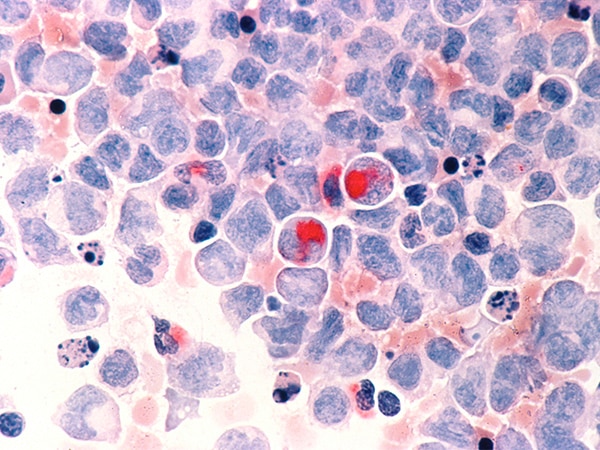A New Molecularly Targeted Therapeutic for Acute Myeloid Leukemia
The new therapeutic was approved by the FDA for treating patients whose leukemia tests positive for a mutation in the IDH1 gene.

The U.S. Food and Drug Administration (FDA) recently approved a new molecularly targeted therapeutic, ivosidenib (Tibsovo), for treating certain patients with acute myeloid leukemia (AML). The FDA also approved a companion diagnostic test to identify those patients eligible to receive it: adults whose AML is progressing despite treatment and that harbors certain mutations in the IDH1 gene.
AML is the most common cause of death from leukemia in the United States, according to National Cancer Institute (NCI) statistics. In 2019, more than 10,900 people are expected to die from the disease.
We already have seen substantive gains in precision medicine for patients with AML. The FDA in 2017 approved two molecularly targeted therapeutics for treating this devastating disease, midostaurin (Rydapt) and enasidenib (Idhifa).
The development of midostaurin and enasidenib stemmed from research into the biology of AML, in particular the genetic mutations that promote its development. Midostaurin and enasidenib target the proteins produced by two of the most commonly mutated genes in AML, FLT3 and IDH2, respectively.
IDH1 is another gene mutated in a significant proportion of AML cases, making the altered proteins produced by mutations in this gene a prime therapeutic target. These are the proteins targeted by ivosidenib.
The approval of ivosidenib was based on results from a phase 1 clinical trial, some of which were published in The New England Journal of Medicine. The results showed that more than 30 percent of patients treated with ivosidenib had complete remission, meaning that there was no evidence of leukemia, with either full or partial recovery of blood counts. These responses lasted for a median of 8.2 months.
The FDA approval was rendered on July 20, 2018.
